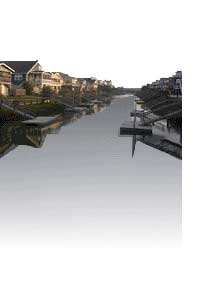The Roman Army.
By AD 100 a Roman Army had settled in Britain. Its task was to
defend this Northern frontier of Rome’s empire and keep the peace. The Romans had paid, full time, trained soldiers,
unlike many of the peoples they fought. Roman discipline and organization triumphed in Britain over Celtic dash and fury.
The Roman army in Britain had three main fort-bases: at Chester, Caerleon and York. Other bases at Gloucester
and Lincoln became towns in which retired soldiers lived. Soldiers were grouped into legions, each with 5,000 to 6,000 men
(legionaires).
There were three British legions in Britain. Every legion had ten units called cohorts, each commanded
by a centurion. A legion had 120 horsemen, who acted as scouts and messengers.
Foot – soldiers (Infantry) won most Roman battles. At the battle of Mons Graupius in Scotland in
AD 84, Agricola himself led the infantry. They charged up the hill stabbing and hacking their way through the enemy ranks.
Meanwhile, The roman cavalry (Horsemen) drove off the British chariots. The Romans claimed 10,000 British dead, for the loss
of only 400 Roman lives.
As they marched across the Britain, the legions took their artillery with them. These were the huge wooden
catapults and slingers used to attack hill-forts. Each night in enemy country the soldiers set up camp. They made trenches
and earth banks around the camp to defend the neat rows of tents.
The Roman army in Britain used many ‘auxiliary troops’. These soldiers came from all over the
empire, including Spain, Greece, Turkey and Africa. Soldiers often joined the Roman army as teenagers and served for 25 years.
Out o their salary they had to pay for the bedding, food, boots and clothing that the army supplied. Each man paid money into
a burial fund and for a yearly camp dinner. Training was hard. It included marching, use of weapons, swimming and tree felling.
In a frontier province like Britain, an army general also had to be a politician and governor. He dealt
with local problems as well as those of the empire.
